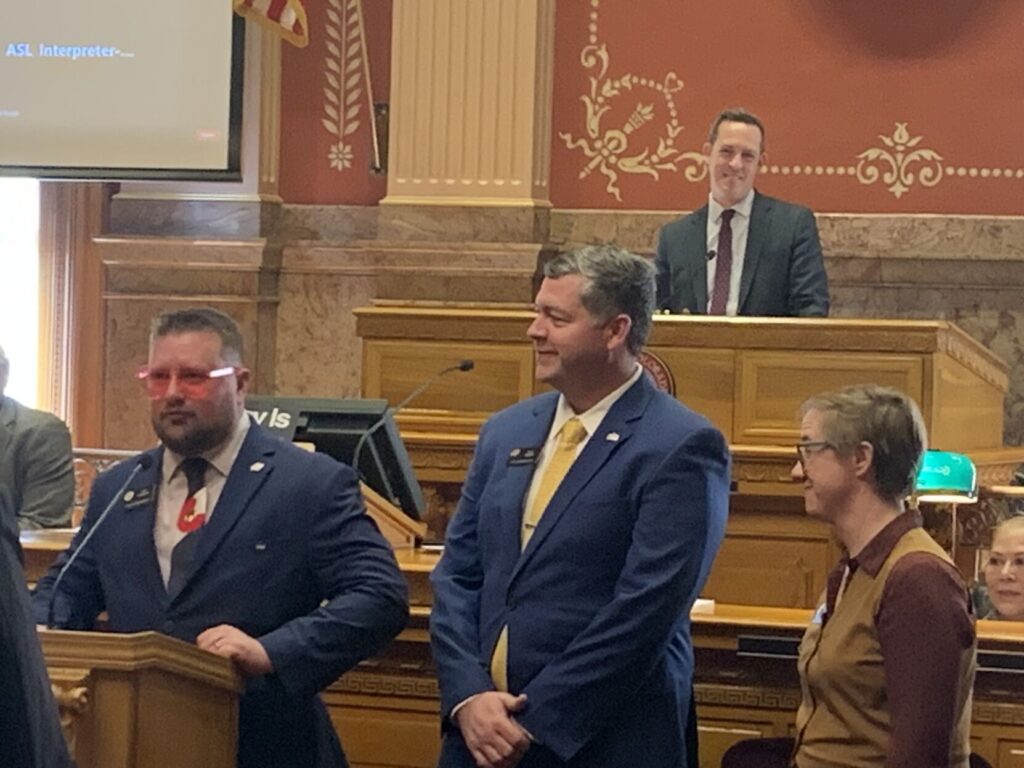Strode: Colorado’s future health care system a ‘work in progress’

As a recipient of the State Innovation Model grant, Colorado is playing a leading role determining how the future of health care might look. Focused on integrating care and payment innovations, the grant is one of many projects targeting health care in the state. In an interview with Catherine Strode, attorney Elisabeth Arenales of the Colorado Center on Law and Policy discusses where Colorado might be headed.Catherine Strode: What kinds of health innovation trends are we seeing in Colorado?
Elisabeth Arenales: We’re seeing a lot of conversations about payment and delivery system reform. Those are taking shape in a variety of ways both on the public side and the Medicaid program and on the private side. On the Medicaid side, we’ve seen the Accountable Care Collaborative focused initially on delivery-system reform and building towards payment-system reform. Those two pieces have to work in tandem. You’ve got to know what outcome you want before you fully develop and adopt a model for payment reform. We’re also seeing some interesting things happen with respect to the demonstration project for full-benefit Medicare and Medicaid enrollees. Colorado has gotten approval for a demonstration grant to coordinate care for people in both programs. That’s a very significant step forward in terms of delivery system reform. Those two systems, both very large, have never intentionally carved out the opportunity for states to try and work with both programs in a coordinated way to improve care and outcomes for those enrollees. There are other potentials for innovation. Colorado has been exploring a Community First Choice grant, a new opportunity under the Affordable Care Act that allows states to be innovative in the way they approach the delivery of services for people who are living in the community who are in need of long-term care. We’re in the process of developing a program.

CS: What is the future of payment reform?
EA: What we’re seeing is delivery-system reform and then payment reform following that, or being used as an incentive, to make sure the delivery-system reform is working correctly. Colorado Medicaid is operating under a fee-for-service delivery system for physical health and a managed-care program for behavioral health. There are multiple conversations and smaller projects going on that are exploring other models and ways of paying for health care. House Bill 1281, which gave Health Care Policy and Financing the authority to run a pilot program that used a different payment model, is in progress. It’s a global payment model that’s being run by Rocky Mountain Health Plans. The State Innovation Model grant is also looking at a range of models of incenting the integration of care. I think it’s important to think of payment reform, in some ways, as the last step in the process. You’ve got to figure out what kind of outcomes you’re looking for, how to structure a program in order to get those outcomes, and then how to pay for that program. From our perspective, we want to make sure the incentive structure that is set up in any reformed health care system is really focused on measuring quality and outcomes – ensuring patients get the right care, at the right time, in the right way. We need to pay attention to those things we’re trying to incent but also to those things that may be unintended consequences of the models we’re trying, so we have a clear picture of what’s working and what’s not as we move forward.
CS: What health care market changes are we seeing?

EA: We’re seeing a lot going on in terms of mergers and consolidation of practices. We’re seeing the five largest national insurance companies looking at acquisitions. Market watchers are thinking those five large companies are likely to be three large companies in fairly short order. That’s a significant change in the way the marketplace is structured. In Colorado, we’re seeing a lot of practice consolidation. There are any number of potential reasons for that, ranging from the need to realize greater efficiency, the need to respond to the cost and incorporation of health information technology requirements, to the need to position practices so that they can maintain the ability to negotiate on a reasonably level playing field with insurance carriers. Other states that have examined the drivers of healthcare costs did conclude, with studies that were done in those states, that market power and position are one of the key drivers of costs. These are all things we ought to be aware of as we think about where health care is moving in Colorado. Consolidation can bring beneficial things in that it can incent efficiency, practice-integration and better communication. It can also drive costs. We are going to have to watch for what happens here.
CS: Is Colorado a leader in health care innovation?
EA: Colorado has been at the forefront of states that have gotten a lot of opportunities to try different innovation models. I know CMS (the Centers for Medicare and Medicaid Services) is looking very carefully at Colorado’s full-benefit Medicaid and Medicare demonstration project, because we are unique in the way we have approached that project. Most states are going with capitated managed-care. We have a managed fee-for-service model. How Colorado does may tell a tale that CMS is quite interested in, in terms of how states might proceed in the future. We have a lot more transparency. As we start to get more data that helps us understand how some elements of our system are working, and what the cost of those elements are, that’s going to help us even more to determine what policy direction we want to take. I think we’re in the midst of a very transformative period. I don’t think we know what the end result looks like yet. It’s a work in progress.
Catherine Strode, MPA, is Advocacy Denver’s policy and outreach specialist.














